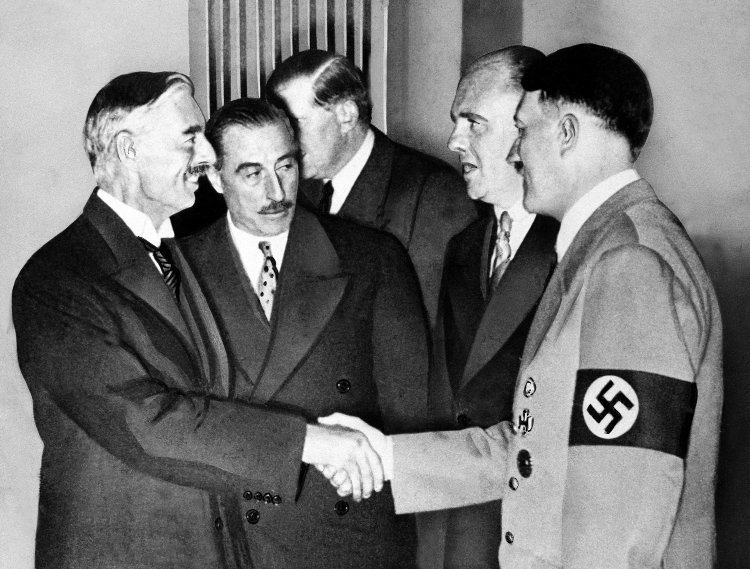Neville Obama
*****************************************************************************
Claiming peace exists to pacify belligerent foes is dangerous business when you are the leader of a major country and the enemy is relentless
*****************************************************************************
As the Syrian civil war continues to spiral out of control and results in more carnage, the characteristically passive approach to foreign affairs by President Obama is coming under scrutiny anew. As with most foreign affairs, Mr. Obama is more comfortable with allowing other countries to take the initiative on difficult matters.
To understand why President Barack Obama leads from the rear when it comes to tough and adversarial situations from Libya to Afghanistan to Iran to North Korea, it is important to look at where he stood before he became president. From the Illinois legislature to the U.S. Senate and all the way through his election in 2008, Mr. Obama had maintained a solidly dovish approach to world affairs. There was no confrontation that the U.S. faced in foreign affairs, in his opinion, that could not be resolved by reaching out to the belligerent party and providing them reasonable concessions.
Neville Chamberlain claimed “peace in our time” when he tried to appease Hitler. He was sorely wrong. Is Barack Obama’s claim that “the tides of war are receding” equally mistaken?
______________________________________________________________________________________
In fact, candidate Obama very explicitly conveyed that most of this country’s foreign policy woes came from both George W. Bush’s black-and-white approach to foreign governments (“You’re either with us or against us”) and President Bush’s requirement that governments back their words of goodwill with actions. To his credit, Barack Obama truly believed what he said and was not merely assuaging the liberal flank of the Democratic Party to win the nomination.
But then Mr. Obama became president and realized that the positions of candidate Obama (and Liberals) aren’t applicable to the times we currently live in. The war on terror is likely the most striking awakening that the president had. After unequivocally stating that President Bush was wrong on Guantanamo and military tribunals, he wound up adopting both, along with many other less-publicized policies. This is a bitter pill for the president and one that he can barely believe, let alone admit to.
Which gets to his standard “leading from behind” posture. As he perhaps is unnerved by the fact that he has become President Bush II in the terror war, he reflexively takes a very low profile on actions that he does not believe in or agree with, almost with the hope that no one will notice despite being in a hyper-charged publicity age fed by a “gotcha” media. From the abdication to NATO on the Libya operation to his knowingly nonstarter position that Israel revert to pre-1967 borders to achieve peace to his navel-gazing on North Korea, Mr. Obama does not want to be associated with matters he does not like or positions he does not agree with. So he claims “the tides of war are receding” as he withdraws troops from Afghanistan and Iraq in the hope that somehow our adversaries will call it a day and not press the matter further in response to his gestures of non-aggression. The problem is, they see Mr. Obama as only acting weak when he withdraws troops from various hotspots; goodwill gestures are seen with contempt by Al Qaeda and the Taliban, not with reciprocal good faith.
As Neville Chamberlain, Prime Minister of Great Britain in the late 1930s, might attest to now, trying to appease a belligerent enemy by claiming “we have peace in our time” will only instigate such enemy to be even more aggressive; few world problems fix themselves or go away especially when they involve determined and misguided enemies. Thus, presidential abdication of the form that Mr. Obama practices might have worked in some parts of the 19th century, but the 21st century demands a president who not only possesses the high intelligence of Mr. Obama, but the leadership from the front of someone like Ronald Reagan or Harry Truman, not the passivity of a Chamberlain.
While we can only be relieved that Neville Obama was not this country’s president on December 7, 1941 nor September 11, 2001, amongst other critical times in history calling for resolute force by the U.S. president, the world still needs a more forceful response from the White House whether President Obama likes it or not.
-I.M. Windee



